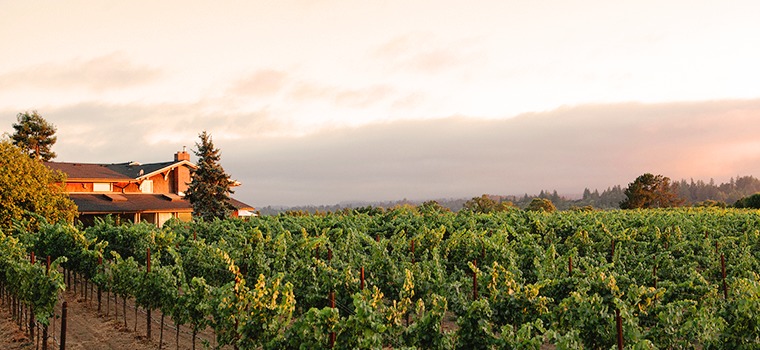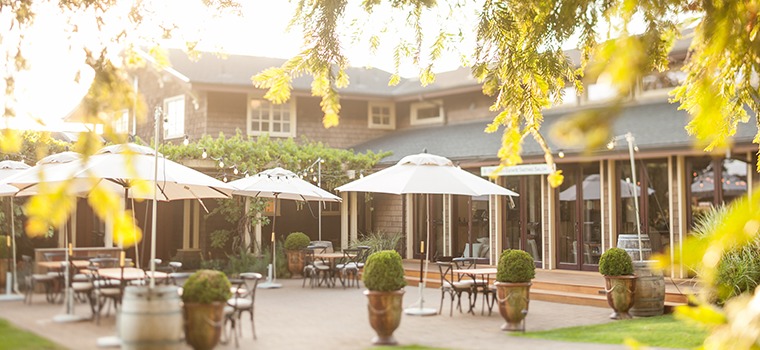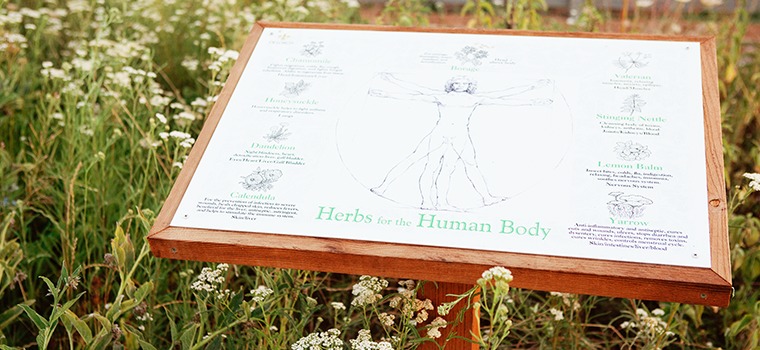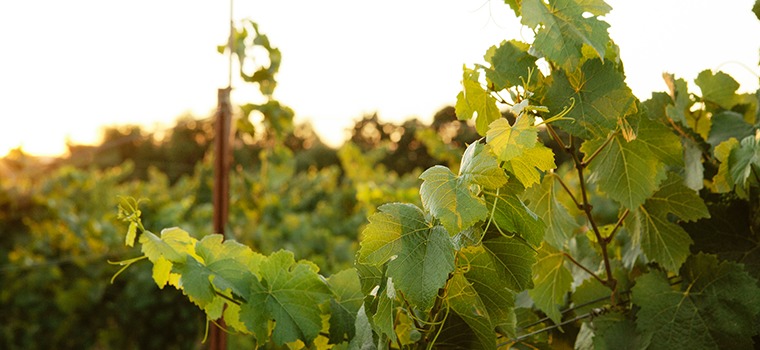Explore our almanac for more information…
Learn more»

Biodynamics In Our Garden and Yours
In The DeLoach Garden
Nature in California gifts an abundant spring full of fragrance, blooms, and green growth. Gradually over the early months of the year from February to May phenomenal displays of wildflowers, tulips, Ceanothus, lilacs, and roses peak and then fade. As a farmer it is a hard act to follow, but an inspiring one.
In May, the soil dries and the green and lush cover crops are incorporated into the soil to feed the summer growth. Working in harmony with the rhythm of the season the warm summer vegetables and flowers are sown as the spring crop is harvested. Tomatoes, peppers both sweet and spicy, squash, onions, basil, melons, cucumbers, sunflowers, dahlias, and more are planted in soil amended with rich estate built compost where potatoes, broccoli, peas, lettuce, carrots, kale, beets, and fava beans thrived in the cool spring. To both celebrate the transition from the cool Earthy season of spring to the warmth upward growth of summer, the biodynamic preparation 500 is applied to the estate. Made of cow manure nestled in a cow horn that was buried in a fertile location all winter, the preparation 500 helps to enhance the life force of decomposition, the Earth element, and open the estate to receive the energy of the cover crop and winter rains.
In Your Garden
To determine what to plant in your home gardens, it is important to learn when is the last chance of frost and when the soil warms up. In the Russian River Valley, our last frost day is approximately April 15. In some years that is the same date that the soil is warm enough to plant the heat loving summer crops, tomatoes, beans, peppers, basil, zucchini and winter squash, cucumbers, melons, sunflowers, and zinnias. For the best success with summer crops I wait to plant them once we have nighttime temperatures in the 50’s. If the temperature is still cooler lettuce, beets, kale, broccoli, peas, radish, onions, parsley, calendula, and bachelor buttons can be planted.
I recommend to start with vegetables that you like to eat. You will be more invested in health and success of a plant that you will look forward to eating. Add some flowers to the garden, flowers make us happy and you will enjoy your time with your plants if they have beautiful blooms as company.
A small space has the same challenges as a large space. You can garden in containers; anything that holds soil and has drainage will work. Learn your space; it will need a minimum of 10 hours of light, regular water. Some containers dry out very quickly, stick your fingers in the soil and learn the soil moisture. Containers will need a source of fertility, since every time they are watered some nutrients wash away.
The greenhouse is filling up with tomatoes, peppers, cucumbers, squash, and summer herbs. In preparation for a long season, the peppers and tomatoes are transplanted into larger pots in the greenhouse. The philosophy is breakfast, lunch and dinner for the young plants. The breakfast is a light planting medium to encourage germination. Once the plant has four leaves it is time for lunch. It is moved into a larger pot with potting soil mixed with compost and worm castings to feed strong root growth. Lastly, dinner for the plant is being transplanted out in the healthy garden beds.
About us
As a pioneering producer and winegrower of Pinot Noir, Chardonnay, and Zinfandel in Sonoma’s Russian River Valley, DeLoach Vineyards has been experimenting with and perfecting the best combinations of soil, rootstock, and clones for over three decades. In 2003, the Boisset family brought two generations of sustainable winemaking experience from Burgundy, France to California’s Russian River Valley.
Organic and Biodynamic Farming
At DeLoach Vineyards, we consider ourselves stewards of the land, with a profound responsibility to pass along a clean environment and revitalized, healthy soil to future generations. We take to heart the Native American proverb that “We do not inherit this land from our ancestors; we borrow it from our children.”
Winemaking Techniques
At DeLoach Vineyards, we focus on small-lot winemaking, giving exceptional care and attention to our Russian River Valley, O.F.S. and Vineyard Designate wines. Our passion is Pinot Noir – the noble variety of Burgundy that demands a delicate, labor-intensive process to showcase the exceptional terroir and complexity of the Russian River Valley and beyond.
Vineyards
We committed to the conversion of 17 acres of estate vineyards from sustainable to biodynamic farming methods, which involves the use of cover crops, the application of biodynamic specific preparations and composts, and the maintenance of biodiversity within the estate. As of December 2009, Demeter granted us our biodynamic certification for both our estate vineyards and 1-acre garden.
Furthermore are honored to work with numerous growers between Sonoma, Marin, and Lake Counties to produce our Vineyard Designate and OFS wines.










